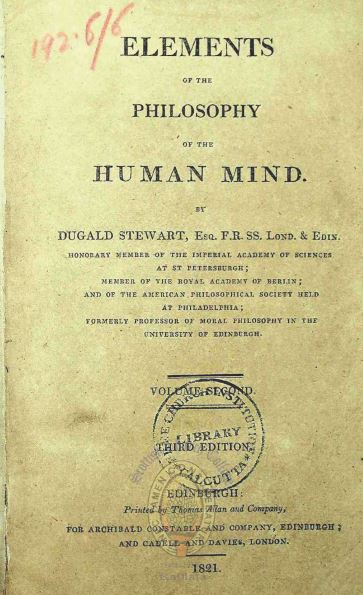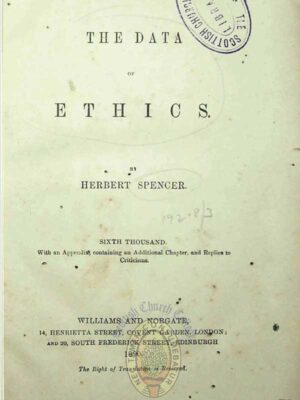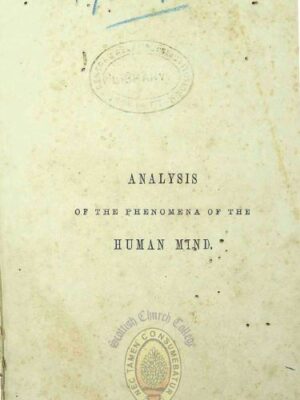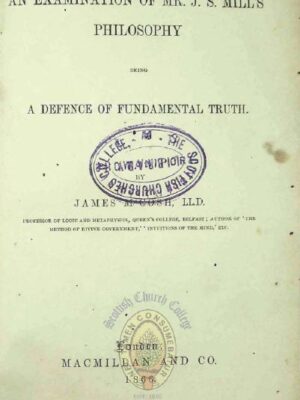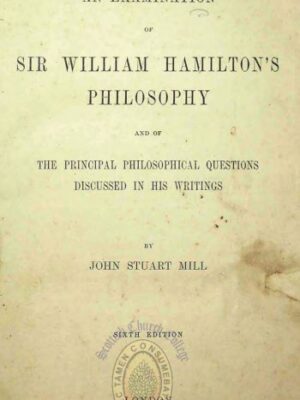Description
Elements of the Philosophy of the Human Mind (Volume II) by Dugald Stewart continues the detailed examination of mental faculties initiated in the first volume. In this second volume, Stewart expands on his exploration of human cognition, delving into the complexities of reasoning, judgment, and the faculties of abstraction and imagination. He also examines the social and moral dimensions of human thought, including the development of moral principles and ethical behavior.
Stewart, a leading figure in the Scottish Enlightenment, follows in the tradition of empirical philosophy, emphasizing observation and reflection to understand the nature of the mind. His work synthesizes insights from earlier philosophers like Locke, Reid, and Hume, providing a clear and systematic account of how the mind processes and interprets sensory data, forms concepts, and engages in higher-order thinking.
This volume is essential for students of philosophy and psychology, as it provides critical insights into early modern theories of cognition and mental processes. It is a key text for understanding the development of ideas about the mind in the Enlightenment period and the foundations of modern psychology.

